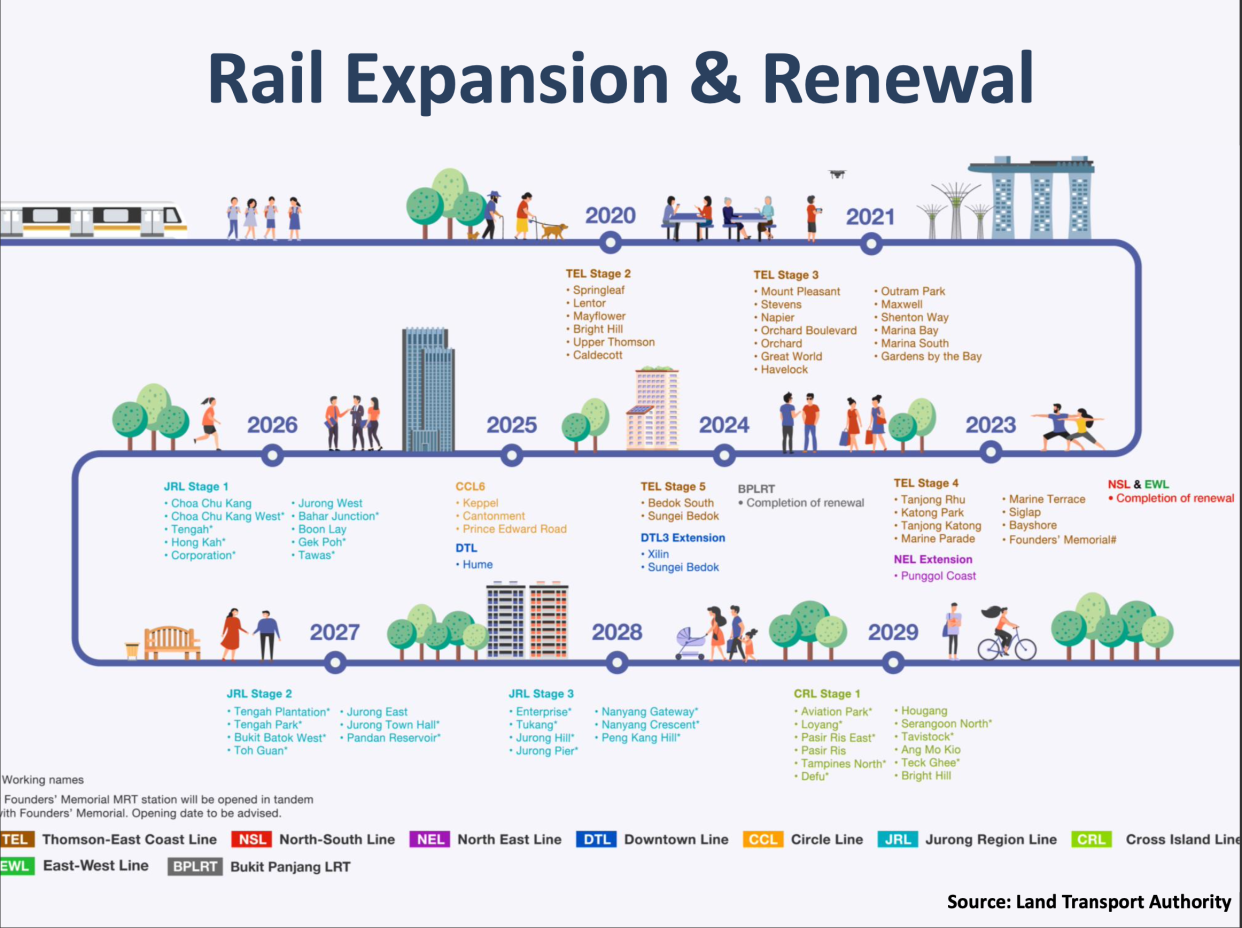More than $60b over next decade to expand, renew rail network: Khaw

SINGAPORE — More than $60 billion will be invested over the next decade to expand and renew Singapore’s rail network, said Transport Minister Khaw Boon Wan in Parliament on Thursday (5 March).
Speaking during his ministry’s Committee of Supply (COS) debate, Khaw said that the extensions to the existing North East Line (NEL) and Downtown Line (DTL) will be completed, while Thomson-East Coast Line (TEL) will be completed alongside the Circle Line.
The Jurong Region Line will also be completed by 2028, while Phase 1 of the Cross Island Line will be finished by 2029.
The minister noted that Stage 1 of the TEL has already opened, with Stage 2 to follow later in 2020. “Can we expedite further? Unlikely, as this is a complex project with many engineering and safety considerations.”
The extensions to NEL and DTL will be completed by 2023 and 2024 respectively, with four new stations added to the rail network. This includes the opening of Hume station by 2025.
The Circle Line will be completed, with the final stretch at Keppel the most challenging to build and also the most costly, noted Khaw. “But when completed in 2025, it will significantly raise the resilience of our MRT network and the travelling experience of our commuters.”
Meanwhile, the Jurong Region Line will ensure that Tuas port workers have good public transport to Tuas. It will complement the Tuas West Extension and the bus services 247 and 248 in the Tuas South area. Furthermore, Phase 1 of the Cross Island Line will contribute towards the subsequent growth of Singapore’s rail network to 360km, from the current 230km.
Need “co-funding” from taxpayers, commuters
Maintenance and renewal works will also take place, such as at Bukit Panjang LRT, the oldest Light Rail Transit station. “Ageing train stations too, will be suitably refurbished and upgraded, especially the toilets and escalators. In time, we will also need to renew the next oldest lines – North East Line and Sengkang Punggol LRT,” said Khaw.
The 67-year-old admitted that the “hard lesson” learnt from the problems earlier faced by rail operator SMRT, is that there must be investment good operations and maintenance. “This means engineering capabilities, as well as the timely renewal of old MRT and LRT lines. There is no free lunch.”
Khaw told the House that because transport is both a capital intensive and skills-intensive business, the Ministry of Transport’s (MOT) budget is among the biggest in Government. “To ensure sustainability, we need taxpayers and commuters to co-fund it. It requires hard-headed calculations and empathy. It requires political honesty and sound judgement.”
Khaw concluded, “By 2030, around 80 per cent of Singaporeans will live within walking distance of a train station. We will have achieved or exceeded the level of train connectivity enjoyed by the residents in Hong Kong, Tokyo and New York today.”
More Parliament stories
Single parents aged 21 and above can now buy 3-room HDBs: Lawrence Wong
Johor-Singapore rapid rail link project remains suspended till end-April: Khaw
More than 1,300km of cycling paths islandwide by 2030: Lam Pin Min



